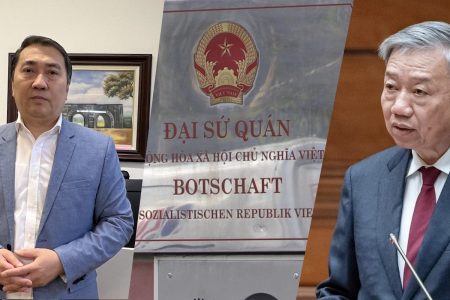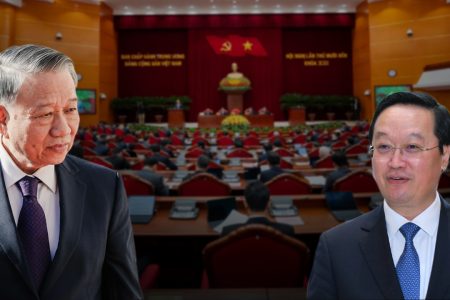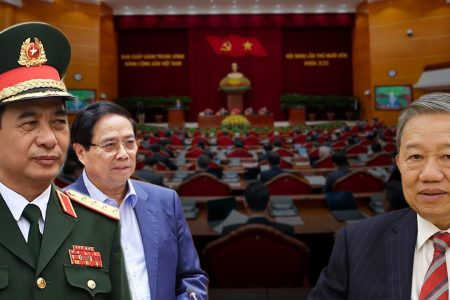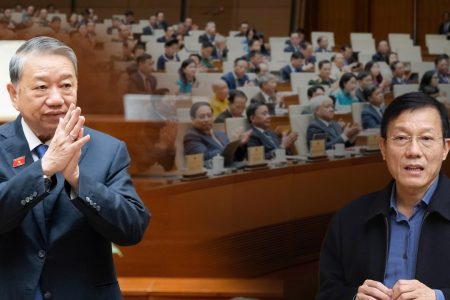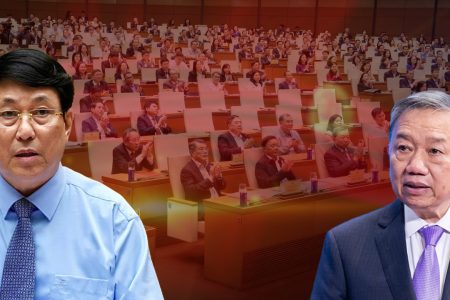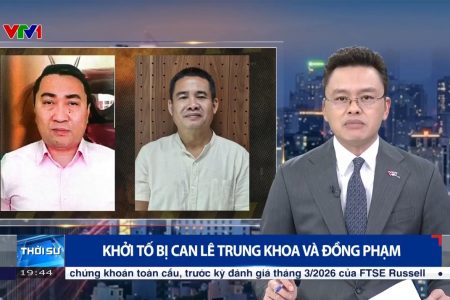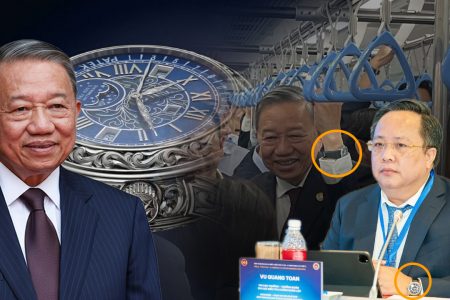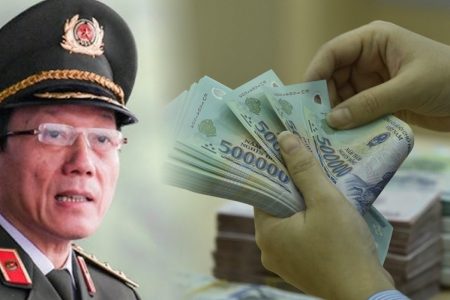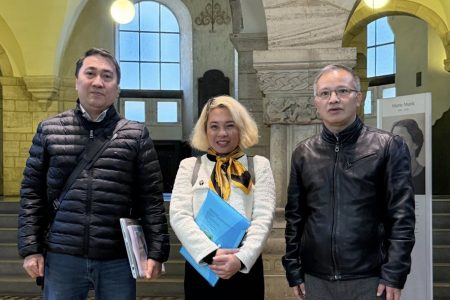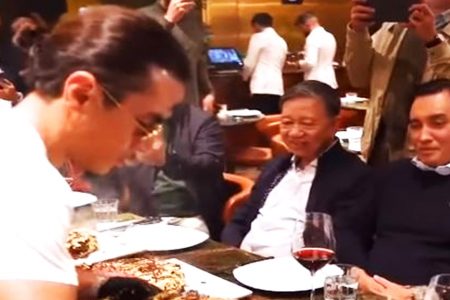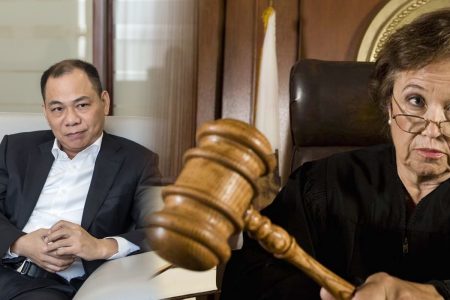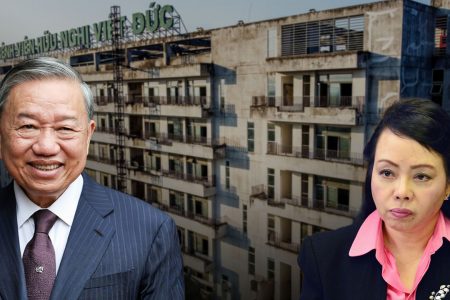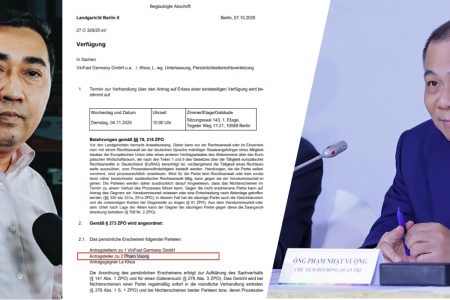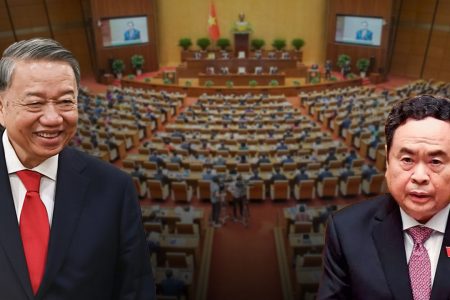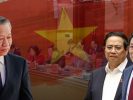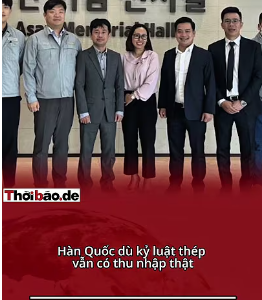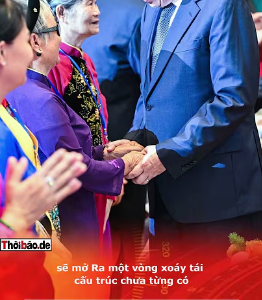
According to the leaked document for Vietnam’s leadership for the next five-year term, the 14th National Congress of the Communist Party of Vietnam will open in early 2026. Recently, a list of Politburo members said to be „leaked“ on social networks has attracted great attention from the public. Although this list has not been officially confirmed, according to insiders, it also reveals key leaders who will retire and others will continue or are expected to be added.
According to observers, these could be speculations based on many factors, especially after Regulation 368-QD/TW was the document that transformed the traditional „four pillars“ system into a „five pillars“ leadership. And it cannot be ruled out that this is a test of public opinion by the Communist Party of Vietnam, they intentionally „leaked“ to probe and assess the level of satisfaction of the people. Thoibao.de is unable to verify the authenticity of this document.
Accordingly, Politburo members have to retire include incumbent Prime Minister Pham Minh Chinh, State President Luong Cuong, Deputy PM Nguyen Hoa Binh, Nguyen Xuan Thang, Nguyen Van Nen, Phan Dinh Trac and Tran Thanh Man.The fact that these figures are expected to leave will create a large gap in senior leadership, but this is necessary to show a strategy of „streamlining“ personnel to avoid aging key leaders. However, according to analysts, this simultaneous change also raises questions about the risk of succession, especially in the field of diplomacy, when Vietnam is balancing relations between major powers.
In addition, there is the List of 17 new Politburo members is expected to continue or be elected. The List has shown the consolidation of the position of General Secretary To Lam, playing a central role. The second-ranked person is Defense Minister Phan Van Giang who is expected to become State President as predicted in March 2025. Other names such as Le Minh Hung, expected to be Prime Minister, Tran Cam Tu will hold the position of Chairman of the National Assembly, and Hanoi Secretary Bui Thi Minh Hoai will become the Standing Member of the Secretariat.
This „five-pillar“ group continues the model of militarized leadership, with 3/5 of the personnel having a background in security and defense. Local secretaries of the 2 leading cities in the country, with: Nguyen Duy Ngoc in Hanoi and Tran Luu Quang in Ho Chi Minh City. This is a matter of prioritizing close personnel to control large cities.
Regarding the Military and Security sector: Nguyen Tan Cuong – Chief of the General Staff, will be Defense Minister while Luong Tam Quang will continue to hold the position of Minister of Public Security, and General Trinh Van Quyet will hold the position of Director of the General Political Department of the Army.
The list of other remaining Politburo members includes the following expected gentlemen: Nguyen Trong Nghia in charge of propaganda; Le Thanh Long, Head of the Central Organization Commission; Nguyen Thanh Nghi, Head of the Central Policy and Strategy Commission; Do Van Chien, in charge of the Fatherland Front; Le Hoai Trung- holding the position of Deputy Prime Minister cum Minister of Foreign Affairs; Le Minh Tri, Head of the Internal Affairs Commission, and Vo Thi Anh Xuan- holding the position of Deputy Chairwoman of the National Assembly.
However, the absence of female personnel, specifically only Vo Thi Anh Xuan and Bui Thi Minh Hoai, as well as the absence of an economic technocrat, is a shortcoming that needs to be revised and supplemented.
If following this scenario, the leadership of the Communist Party of Vietnam after the 14th National Congress will maintain stability, with General Secretary To Lam as the central figure, to ensure the foreign policy of „bamboo diplomacy“ and close internal supervision.
This could be a solid step forward compared to the turmoil at the 13th National Congress, with four changes to the Standing Committee of the Secretariat and many key figures being removed.
According to political experts, the risk of factions and rumors spreading could undermine public trust if the party cannot control such rumors.
Tra My – Thoibao.de



